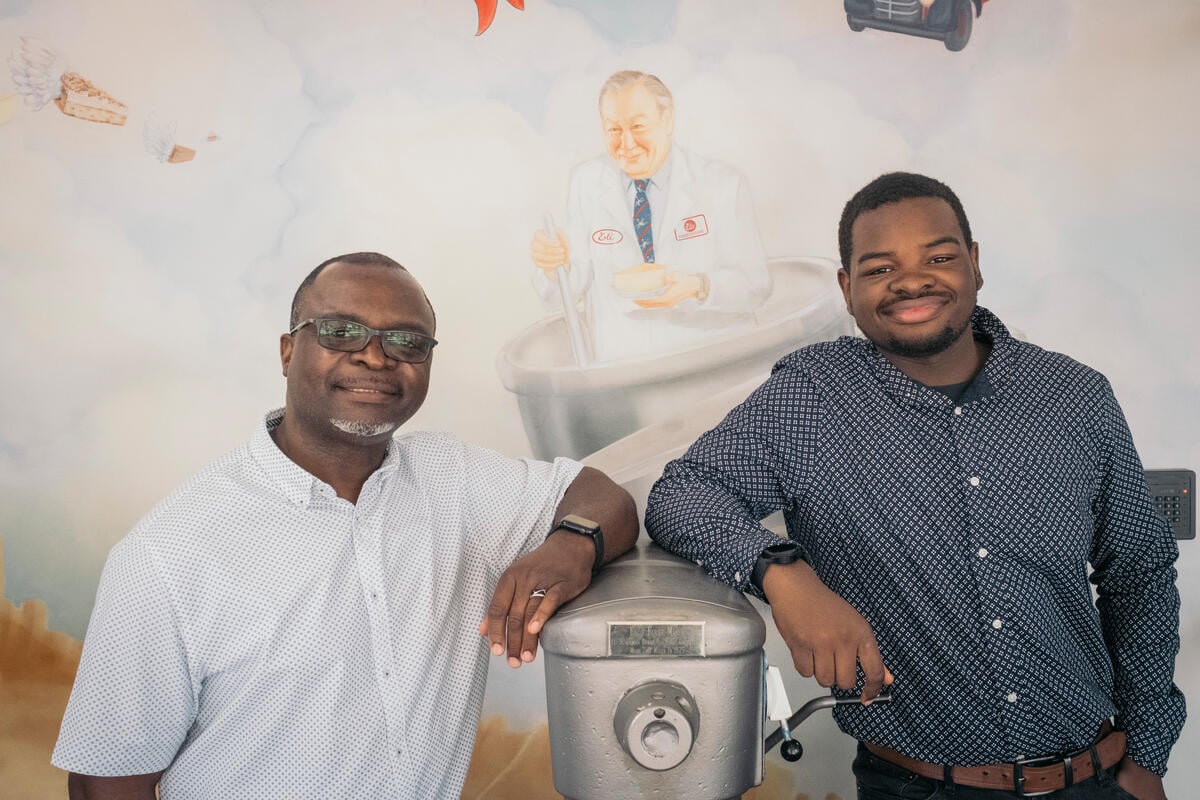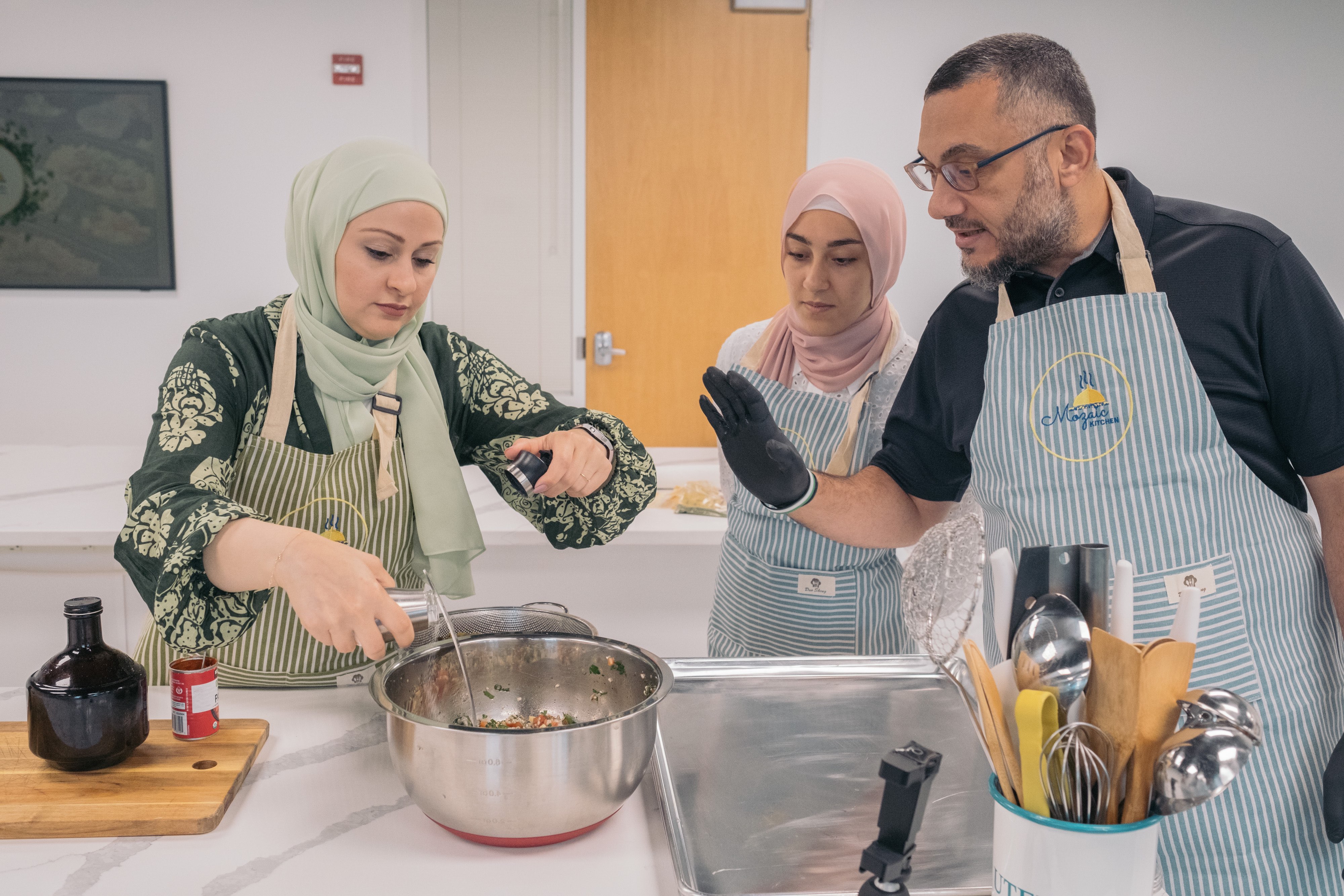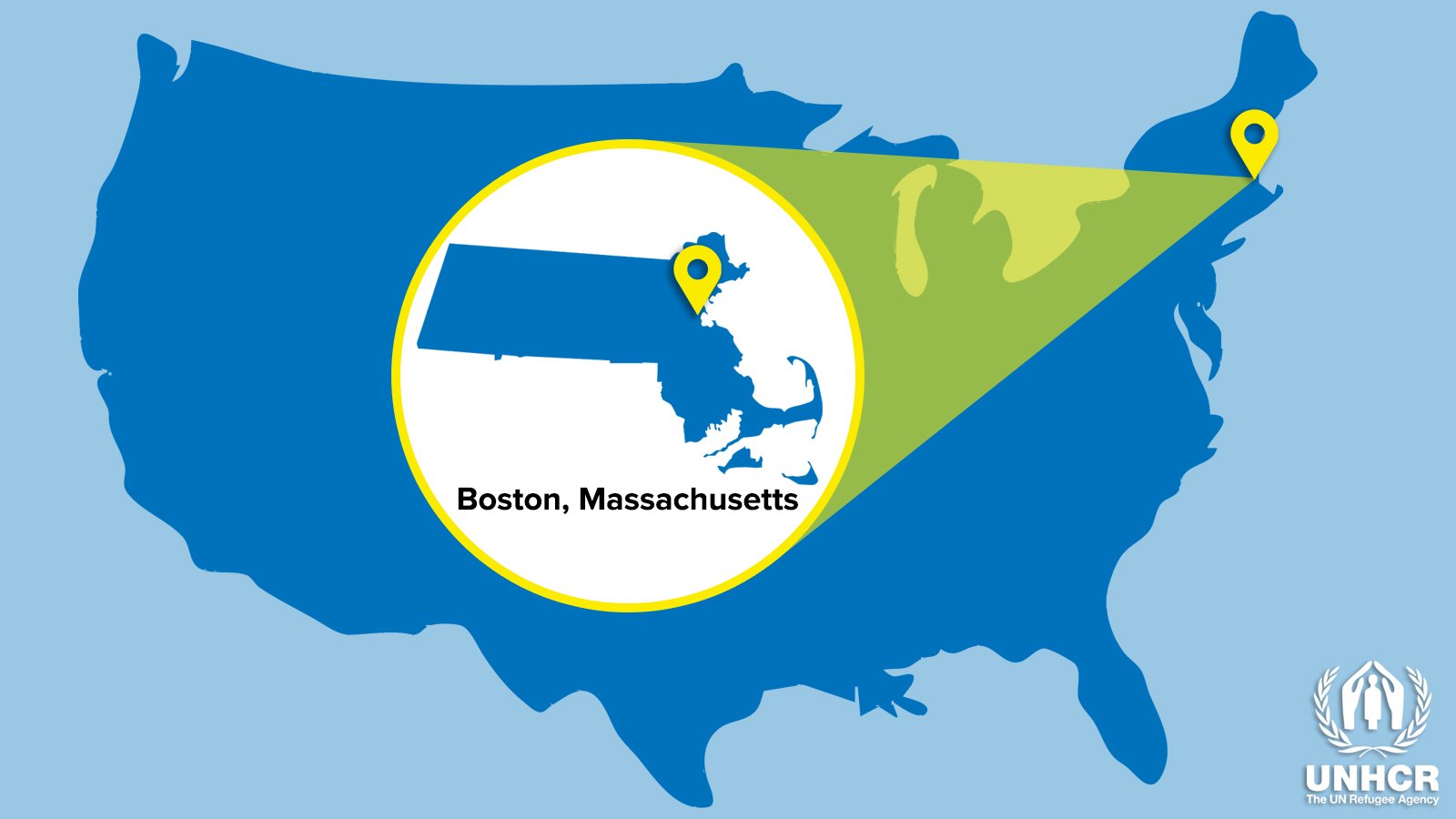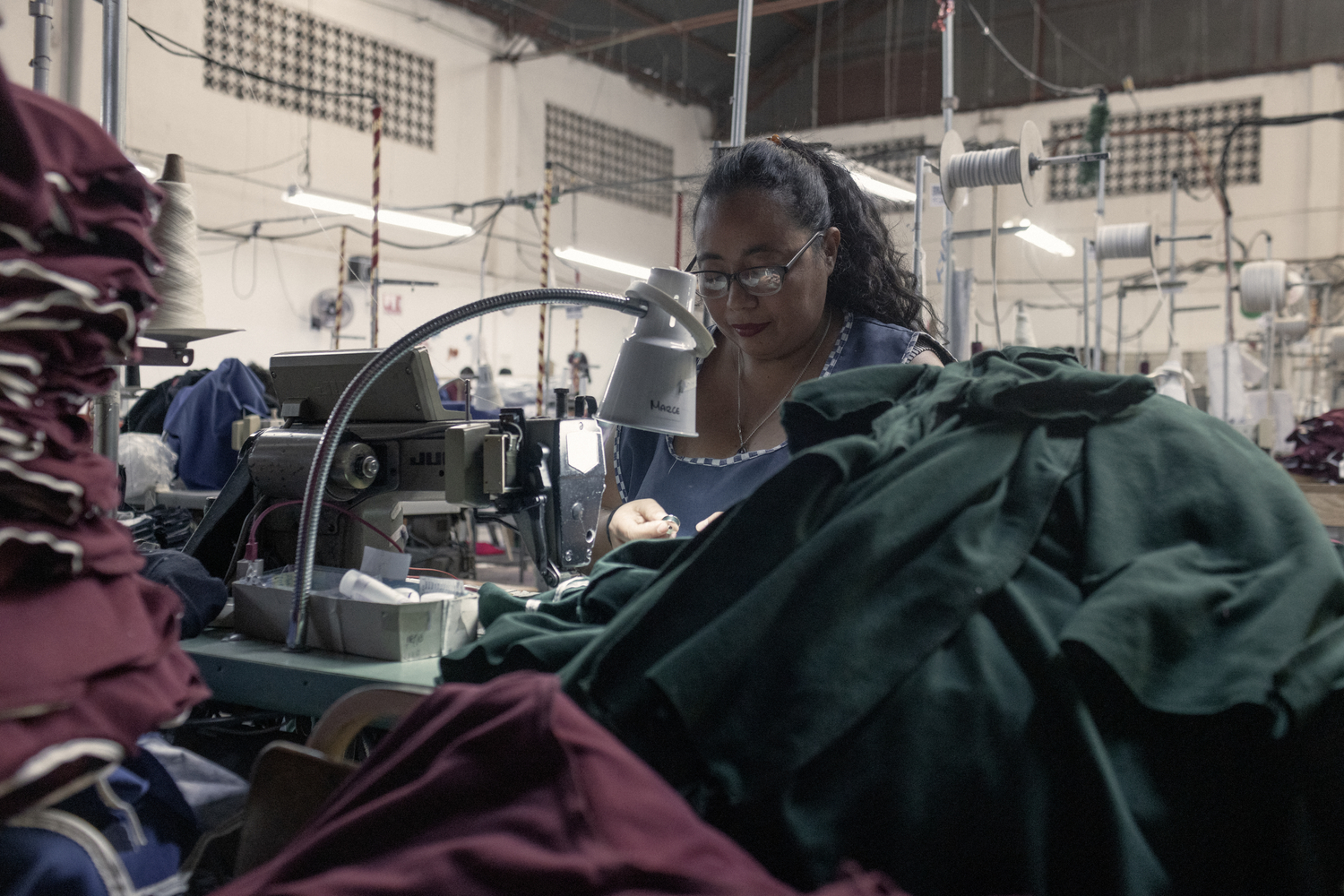With heads and hearts, five Kentucky teens rally for refugees
With heads and hearts, five Kentucky teens rally for refugees

“It was a window into what my mom went through when she was a little girl.”
Like most American teens, Allison, Mihir, Mark, Nivedha and Jennifer lead very busy lives. One of them plays varsity tennis, another performs with an orchestra, and all five volunteer at schools and clinics around Kentucky. But their shared passion is their high school debate team.
Last May, after months of preparation, the debaters from duPont Manual High School in Louisville, Kentucky, prevailed at the prestigious International Public Policy Forum debate tournament in New York, arguing that countries have a moral obligation to provide safe haven to refugees. For their efforts, they were awarded a $1,500 prize, which they graciously donated to UNHCR, the UN Refugee Agency.
“We wish we could contribute more, and, at the same time, we deeply wish the need were less,” the team wrote in a letter to UN High Commissioner for Refugees Filippo Grandi.
All five teens are first-generation Americans with deep personal connections to global migration, refugee issues and generous communities that warmly welcome strangers.
“We wish we could contribute more, and, at the same time, we deeply wish the need were less.”

Allison Tu, the dynamic 16-year-old debate team captain, is keenly aware of her “good fortune and privilege” as the “daughter, niece, and granddaughter of Vietnamese refugees who were successfully resettled to the U.S. by the American government through Operation New Life,” when the Vietnam War ended in 1975. Her mother, who was six years old at the time, would tell Allison about how the family escaped on one of the last planes out of Saigon, the months they lived in refugee camps in Guam and the Philippines and their resettlement to Chicago, where they lived communally with five families and where her grandparents worked menial jobs and went to school at night so that Allison’s mother and uncle could get an education and ultimately become doctors.
Allison’s teammate Jennifer Xu, 17, also from a family of Vietnamese refugees, grew up with similar stories. “We all have emotional ties to the subject,” she said of her debate teammates. Her grandfather was sent to a reeducation camp, and her uncle, who was Jennifer’s age at the time, was forced to clear landmines. Her uncle and aunt escaped on overcrowded boats in 1977 and 1979 respectively, but four cousins perished along the way.
The comparisons with today are hard to ignore, Jennifer said. This year, 22 million refugees, some of them children just like her aunt and uncle 40 years ago, are fleeing unimaginable terrors in Syria, Myanmar and elsewhere.
The debate competition turned out to be a lightbulb moment for all five teens.
“The issues we address in the debate should not disappear when you step out the door.”

Fifteen-year-old Nivedha Loganathan, the daughter of Indian immigrants, was never forced to flee her home but has moved many times and knows well the “culture shock” of starting a new life in a new place. The debate “ignited a spark,” she said, “to help refugees in my own community.”
“The issues we address in the debate should not disappear when you step out the door,” says 17-year-old Mark Raj, who is inspired to work on behalf of refugees.
“Louisville has a long tradition of hospitality,” High Commissioner Grandi said, congratulating the teens for their “spirit and goodwill,” in a letter to the team. “We count on you to keep this conversation alive in your classrooms and communities,” he wrote.
Mihir Kale, who says the debate competition “has probably changed my career aspirations,” summed up the team’s feelings when they were awarded the prize: “We have 1,500 bucks. Why not do something good with it.”









